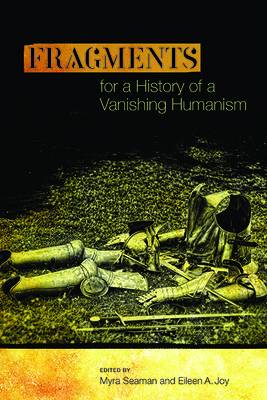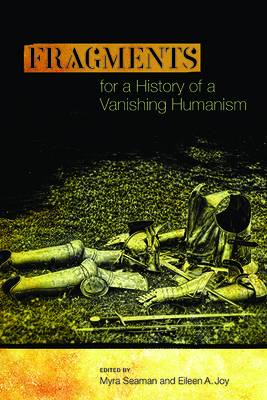
- Afhalen na 1 uur in een winkel met voorraad
- Gratis thuislevering in België vanaf € 30
- Ruim aanbod met 7 miljoen producten
- Afhalen na 1 uur in een winkel met voorraad
- Gratis thuislevering in België vanaf € 30
- Ruim aanbod met 7 miljoen producten
Zoeken
€ 60,95
+ 121 punten
Uitvoering
Omschrijving
Fragments for a History of a Vanishing Humanism brings together scholars working in prehistoric, classical, medieval, and early modern studies who are developing, from longer and slower historical perspectives, critical post/humanisms that explore: 1) the significance (historical, sociocultural, psychic, etc.) of human expression and affectivity; 2) the impact of technology and new sciences on what it means to be a human self; 3) the importance of art and literature in defining and enacting human selves; 4) the importance of history in defining the human; 5) the artistic plasticity of the human; 6) the question of a human collectivity--what is the value, and peril, of "being human" or "being post/human" together?; and finally, 7) the constructive, and destructive, relations (aesthetic, historical, and philosophical) of the human to the nonhuman. This volume, edited by Myra Seaman and Eileen A. Joy, insists on the always provisional and contingent formations of the human, and of various humanisms, over time, while also aiming to demonstrate the different ways these formations emerge (and also disappear) in different times and places, from the most ancient past to the most contemporary present. The essays are offered as "fragments" because the authors do not believe there can ever be a "total history" of either the human or the post/human as they play themselves out in differing historical contexts. At the same time, the volume as a whole argues that defining what "the human" (or "post/human") is has always been an ongoing, never finished cultural project.
Specificaties
Betrokkenen
- Auteur(s):
- Uitgeverij:
Inhoud
- Aantal bladzijden:
- 320
- Taal:
- Engels
- Reeks:
Eigenschappen
- Productcode (EAN):
- 9780814252710
- Verschijningsdatum:
- 30/07/2016
- Uitvoering:
- Paperback
- Formaat:
- Trade paperback (VS)
- Afmetingen:
- 152 mm x 229 mm
- Gewicht:
- 435 g

Alleen bij Standaard Boekhandel
+ 121 punten op je klantenkaart van Standaard Boekhandel
Beoordelingen
We publiceren alleen reviews die voldoen aan de voorwaarden voor reviews. Bekijk onze voorwaarden voor reviews.











